155 PhD-economics positions in Denmark
Filtered by.
- PhD-economics

Refine Your Search
- Last-24-hours 3
- Last-3-days 4
- Last-7-days 8
- Last-30-days 24
- Scholarship 48
- Research Job 46
- Postdoctoral 39
- Fellowship 1
- Technical University of Denmark 74
- Copenhagen Business School , CBS 17
- Copenhagen Business School 16
- Aarhus University 14
- Aalborg University 10
- University of Copenhagen 7
- University of Southern Denmark 3
- ; Technical University of Denmark 2
- COPENHAGEN BUSINESS SCHOOL 1
- European Magnetism Association EMA 1
- Geological Survey of Denmark and Greenland (GEUS) 1
- Roskilde University 1
- Syddansk Universitet 1
- Technical University Of Denmark 1
- Economics 61
- Computer Science 19
- Engineering 14
- Business 10
- Medical Sciences 10
- Linguistics 4
- Humanities 3
- Psychology 3
- Social Sciences 3
- Materials Science 2
- Chemistry 1
- Environment 1
- Statistics 1
PhD scholarship in Pension Economics
related to staff position within a Research Infrastructure? No Offer Description Copenhagen Business School invites applications for a vacant PhD scholarship within the field of pension economics . The
Copenhagen Business School invites applications for a vacant PhD scholarship within the field of pension economics . The expected start date is September 1, 2024. Core research areas
PhD fellowship at the Department of Food and Resource Economics
The Department of Food and Resource Economics (IFRO) is inviting applications for PhD scholarships to start up in August 2024 or later. IFRO carries out pure basic and applied social science
PhD scholarships in Economics , Department of Economics
@cbs.dk . Information about the department can be found at https://www.cbs.dk/en/research/departments-and-centres/department-of- economics . Employment and salary A PhD scholarship runs for a period of three
PhD scholarship in Environmental Economics and Sustainable Finance - DTU Management
Skip to main content. Profile Sign Out View More Jobs PhD scholarship in Environmental Economics and Sustainable Finance - DTU Management Kgs. Lyngby, Denmark Job Description The Climate and Energy
PhD scholarship in Aquatic animal health economics - DTU Aqua
Skip to main content. Profile Sign Out View More Jobs PhD scholarship in Aquatic animal health economics - DTU Aqua Kgs. Lyngby, Denmark Job Description Join us on our mission to monitor and promote
PhD scholarship at the Department of International Economics , Government and Business, CBS
24 Jan 2024 Job Information Organisation/Company Copenhagen Business School Research Field Economics » Business economics Economics » Management studies Researcher Profile First Stage Researcher (R1
Copenhagen Business School invites applications for a PhD scholarship in Political Economy with a focus on Ukraine. The PhD scholarship is based at the Department of International Economics
Reannouncement - PhD Stipend in Precision health diagnostics for improved prediction, diagnosis and monitoring of adverse effects – a Sino-Danish collaboration
more than 250 employees and is responsible for more than 1700 students. More than 70 PhD students are enrolled in the doctoral school affiliated to the department. The researchers are organized in a number of
Postdoc position in maritime strategy and digitalization at the Department of Strategy and Innovation
18 Apr 2024 Job Information Organisation/Company Copenhagen Business School Department Department of Strategy and Innovation Research Field Economics Researcher Profile Recognised Researcher (R2
Searches related to PhD economics
- phd agricultural economics
- economics phd
- phd development economics
- postdoctoral
- msc economics
- phd in environmental economics
Aarhus BSS School of Business and Social Sciences Aarhus University
Economics and business economics, about the programme:.
During the first part, the PhD students are required to participate in an individually designed advanced course programme. In the second part of the programme the purpose is to develop the PhD students’ ability to conduct research on a specific topic under supervision. The study finishes with a PhD thesis that can be a monograph or a collection of research papers including a summary which explains the scientific outcome of the papers and their connections.
Research facilities:
The Department of Economics and Business Economics is host to numerous research centres, which offer excellent research facilities for our PhD students.
- Read more about our research centres and research groups
National and international cooperation:
The programme cooperates with other Danish PhD programmes in Economics and Finance through the network Danish Graduate Programme in Economics ( DGPE ). The main purpose of this network is to offer specialised field courses to PhD students; also the network organises annual workshops for the PhD students in the participating programmes. The programme is also part of the Nordic Network in Economics (NNE) and the Nordic Finance Network (NFN). The purpose of these networks is to offer field courses in economics and finance across the Nordic countries.
Employment:
Graduates of the PhD programme in Economics and Business Economics find employment in both public and private enterprises. Among others, recent graduates have obtained employment at University of London, Stockholm School of Economics, Nanjing University, University of Gothenburg, Copenhagen Business School, University of Copenhagen, University of Aarhus, McKinsey and Company, PricewaterhouseCoopers, London Economics, Barclays Capital, Bank of America Merill Lynch, International Monetary Fund (IMF), Bank of England, Central Bank of Denmark, Dong Energy, Vestas, ATP, Copenhagen Economics.
Geographic location:
PhD students enrolled in our programme are located at the Department of Economics and Business Economics at Campus Fuglesangs Allé 4, Aarhus.
Approx. number of PhD students:
Head of programme.

Helena Skyt Nielsen

Susanne Christensen
Aarhus University logo
Department of Economics and Business Economics

Economics and Business Economics

Visit our three research sections Econometrics and Business Analytics, Economics, and Finance.

Find our Bachelor's and Master's programmes or explore the opportunity of taking a PhD, HD or an MBA.

Collaboration
Read about our outreach activities and how we collaborate with businesses, alumni partners and secondary schools.
Postdoc receives grant to predict El Niño
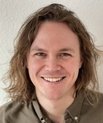
Postdoc Sebastian Mathias Jensen from the Department of Economics and Business Economics has received DKK 2.27 million from Independent Research Fund…
New head of department at the Department of Economics and Business Economics
No major upheavals will follow when Thomas Quistgaard Pedersen takes up the position as head of the Department of Economics and Business Economics on…
Julia Nafziger receives DKK 2.6 million to research social norms
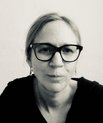
Julia Nafziger, professor of economics, has received a DKK 2.6 million grant from Independent Research Fund Denmark to investigate the relationship…
Labour & Public Policy Seminar: Louis Freget, University of Copenhagen
Title: Being on the margin of being induced early because of health risks - Consequences for high BMI mothers and their children
Econometrics Lunch Seminar: Tom Engsted, AU
Title: What is the false discovery rate in empirical research?
TrygFonden's Child Research Seminar Series: Helene Willadsen, University of Copenhagen
Title: Gender Differences in Choice of Educational Field:Evidence from a Large-Scale Survey Experiment
Forskningens Døgn
Kom og vær med, når vi onsdag den 24. april 2024 kl. 14-18 på Aarhus Universitet forvandler Stakladen og de omkringliggende lokaler til en legeplads…
CoRE Grand Opening
The opening of Center for Research in Energy: Economics and Markets (CoRE) will be held on 30 April 2024 in the Harvard Lecture Room at Campus…
16th Nordic Summer Institute in Labor Economics
Page 1 of 2.
PhD programme
Danmarks Nationalbank offers several fellowships to support students enrolled in a PhD programme in economics or finance. Resident students are hosted at Danmarks Nationalbank for the duration of their PhD programme and collaborate with economists on research projects.
PhD fellows will be mentored by the academic advisers on the PhD programme at the university where they are enrolled. They must be physically present at the bank on a regular basis during the week, participate in the bank’s professional and social environment, be integrated in the activities of the Research Unit and work towards the completion of their PhD thesis.
As a PhD student in Danmarks Nationalbank, you will:
Get a monthly stipend equivalent to the PhD stipend offered by Danish universities and an office space with seaside view.
Collaborate with a young international team of PhD economists working in the Research Unit on research topics within macroeconomics, finance, household finance and labour economics.
Work with extensive household, enterprise and bank microdata.
Benefit from the wide range of expertise of economists working in different areas of the bank and be exposed to lively policy discussions that have inspired numerous research projects.
Participate in numerous workshops, research seminars and conferences.
PhD fellow impressions
Christian Philip Hoeck started in 2021 as a PhD student at the bank. He is particularly pleased with the network he has gained.
“I’m affiliated with both the Research department here at Danmarks Nationalbank and the Department of Economics at the University of Copenhagen. I can therefore draw on both networks, and I think that’s a great advantage,” he says.
Christian is also pleased with the opportunity to follow the bank’s work from the inside.
“While writing my dissertation, I’m also part of the Economics and Monetary Policy department. It gives me the opportunity to follow how Danmarks Nationalbank relates to developments in the Danish and international economy,” he says.
Current participants
Past participants.
Past participants in the PhD programme have undertaken careers in research, policymaking, and consulting, including positions at Danmarks Nationalbank, the University of Copenhagen, the Danish Financial Supervisory Authority, the European Banking Authority, the Bank of England and private employers. Their research work has been published, among others, in the European Economic Review, the Scandinavian Journal of Economics, the Journal of Economic Dynamics and Control, the Journal of Macroeconomics and the Journal of Empirical Finance.
Skip to content. Skip to navigation Go to page content Go to navigation of subsection Go to section "Why Denmark" Go to subsection "Study in Denmark" Go to subsection "Live in Denmark" See "Guides" Go to "News" About this site
- Guides to go!
- The Danish lifestyle
- Denmark - an innovation leader
- Study in English
- High academic standards
- Guarantee for a quality experience
- Money-Saving Tips
- International students’ survival guide to life in Denmark
- Watch more videos from Study in Denmark
- Video testimonials
- Article testimonials
- “Don’t be afraid of challenges”
- Academy Profession (AP) degree programme
- Bachelor's degree programmes
- Master's degree programmes
- PhD programmes
- Exchange programmes
- Summer schools
- Higher Education Institutions
- Language requirements
- Regulations of Admission (Quota 1 and Quota 2)
- Stand-by list
Tuition Fees
- Scholarships
- Do I need a visa?
- Registration certificates (EU/EEA/Swiss citizens)
- Residence permits (non-EU/EEA citizens)
- How do I register my residence in Denmark?
- How do I get a Danish ID-number? (CPR)
- Emergency (112) and police (114)
- Finding housing
- Housing links
- Learn Danish
- Bank & Budget
- Student jobs
- Travel & Transport
- The practicalities
- Starting up your own business
- Paying taxes
- Work life balance
- “My best decision ever!”
- “In Denmark you always have something to do”
- “I am on the right track.”
- “The safe option is not always the best option”
- “Hard, but I gained a lot of valuable knowledge”
- Study in Denmark
- Studyindenmark Youtube Channel
- See more videos from Study in Denmark

Master (2 years) of Science in Economics, 120 ECTS
Description, career opportunities , admission .
- BSc in Economics,
- BSc in Economics and Business Administration (HA) or
- BSc in Mathematics and Economy.
Further Information
Autumn - eu/eea or swiss citizens, application date, autumn - non-eu/eea, spring - non-eu/eea, spring - eu/eea or swiss citizens, university of southern denmark (sdu).
At Campus Odense 800 researchers and nearly 12 000 students every day work on discovering new knowledge, realisation, and education. Campus Odense is also home to The University Library of Southern Denmark which supports research and education through books and access to databases. A web of cycle lanes connects Campus Odense with the inner city. A city filled with leisure offers for both students, researchers, and teachers.
How to apply
Read about the application process and the steps you need to take to study at a Danish Institution of Higher Education
Tuition fees & Scholarships
Here's the quick guide to all you need to know about tuition fees and scholarships
News from Study in Denmark About Danish research and higher education
Application deadline for 2024 is approaching
If you want to be enrolled in a higher education study programme in Denmark, the application deadline is less than a month away.
Time to Mind
Are you planning to study abroad in the future? Then be prepared for a possible "culture shock".

Do you have questions about applying for a study programme in Denmark?
If you want to apply for a higher education study programme in Denmark, then you can participate in a live chat and ask your questions about the application process to a guidance counsellor.
Are you going to apply for an education in Denmark?
If you plan on applying for a higher education in Denmark then you can participate in the live chat.
The 2022 edition of International students' survival guide
You may be new to Denmark and excited to start your study programme here. This new student guide comes in handy, if you are looking for a soft landing and could need some information
DENMARK: PhD fellowships at Department of Food and Resource Economics, University of Copenhagen

Department of Food and Resource Economics (IFRO) of the University of Copenhagen is inviting applications for PhD scholarships to start up from 1 September 2022 or later.
IFRO carries out pure basic and applied social science research and have a number of educational and public sector advisory service responsibilities within our thematic fields. We are characterized by a high involvement in interdisciplinary research at both international and national levels.
Research areas
The relevant research areas for the PhD scholarships are within the following thematic areas covered by the four larger research groups at IFRO:
Environment and natural resources, which includes the economic regulation of environmental externalities and natural resource use, environmental valuation methods, energy economics, behavioural economics, environmental sociology and governance, conflict resolution, climate change policies, forest economics and management, fishery and aquaculture economics, biodiversity conservation, and environmental ethics
Production, markets and policy, which include production economics, applied micro-economics, efficiency analysis, innovation, management science, organization and ownership, policy design and analysis, business economics, agricultural and food economics, policy and regulation, trade negotiations and agreements, and the impact of international trade on food and natural resources
Consumption, bioethics and regulation, which includes food economics, food sociology and policy, law, consumer behaviour and policy, nutritional policy studies and nutritional sociology, public health economics and policy in both the human and the animal science fields. It also includes ethics and value aspects of food production, nutritional policy, animal husbandry, companion animals, veterinary practice, and the management of the environment and of natural resources
Global development, which includes inter-disciplinary research on economic, political, environmental, and institutional dynamics in developing societies. Research areas include issues of livelihoods, small-scale industry, trade, and labour; of climate change mitigation and adaptation; of forest and natural resource management; of resource conflicts and governance; of state formation, and law.
Who are we looking for?
Applicants should hold an MSc degree related to the thematic areas mentioned above with good results and good English language skills. As criteria for the assessment of your qualifications, emphasis will also be laid on previous publications (if any), relevant work experience and the potentials of the applicant’s proposed non-binding research project.
Applicants are encouraged to submit a brief non-binding research proposal to illustrate general interest and ability to formulate a research idea. The final research topic for the applicants hired are decided upon in dialogue. The Department may propose topics relevant for the applicants’ profile, which are better fits to ongoing activities and/or hold greater potential.
The PhD programme
Depending of your level of education, you can undertake the PhD programme as either:
Option A: A three year full-time study within the framework of the regular PhD programme (5+3 scheme), if you already have an education equivalent to a relevant Danish master’s degree.
Option B: An up to five year full-time study programme within the framework of the integrated MSc and PhD programme (the 3+5 scheme), if you do not have an education equivalent to a relevant Danish master´s degree – but you have an education equivalent to a Danish bachelors´s degree .
********************************************************************************
Option A: Getting into a position on the regular PhD programme
Qualifications needed for the regular programme
To be eligible for the regular PhD programme, you must have completed a degree programme, equivalent to a Danish master’s degree (180 ECTS/3 FTE BSc + 120 ECTS/2 FTE MSc) related to the the thematic areas mentioned above. For information of eligibility of completed programmes, see General assessments for specific countries and Assessment database .
Terms of employment in the regular programme
Employment as PhD fellow is full time and for maximum 3 years.
Employment is conditional upon your successful enrolment as a PhD student at the PhD School at the Faculty of SCIENCE, University of Copenhagen. This requires submission and acceptance of an application for the specific project formulated by the applicant.
The terms of employment and salary are in accordance to the agreement between the Ministry of Finance and The Danish Confederation of Professional Associations on Academics in the State (AC). The position is covered by the Protocol on Job Structure.
Option B: Getting into a position on the integrated MSc and PhD programme
Qualifications needed for the integrated MSc and PhD programme
If you do not have an education equivalent to a relevant Danish master´s degree , you might be qualified for the integrated MSc and PhD programme, if you have an education equivalent to a relevant Danish bachelor´s degree. Here you can find out, if that is relevant for you: General assessments for specific countries and Assessment database .
Terms of the integrated programme
To be eligible for the integrated scholarship, you are (or are eligible to be) enrolled at one of the faculty’s master programmes with relations the thematic areas mentioned above.
Students on the integrated programme will enroll as PhD students simultaneously with completing their enrollment in this MSc degree programme.
The duration of the integrated programme is up to five years, and depends on the amount of credits that you have passed on your MSc programme. For further information about the study programme, please see: www.science.ku.dk/phd , “Study Structures”.
Until the MSc degree is obtained, (when exactly two years of the full 3+5 programme remains), the grant will be paid partly in the form of 48 state education grant portions (in Danish: “SU-klip”) plus salary for work (teaching, supervision etc.) totalling a workload of 150 working hours per year.
A PhD grant portion is currently (2021) DKK 6.321 before tax.
When you have obtained the MSc degree, you will transfer to the salary-earning part of the scholarship for a period of two years. At that point, the terms of employment and payment will be according to the agreement between the Ministry of Finance and The Danish Confederation of Professional Associations on Academics in the State (AC). The position is covered by the Protocol on Job Structure.
Responsibilities and tasks in both PhD programmes
Complete and pass the MSc education in accordance with the curriculum of the MSc programme
(ONLY when you are attending the integrated MSc and PhD programme)
Carry through an independent research project under supervision
Complete PhD courses corresponding to approx. 30 ECTS / ½ FTE
Participate in active research environments, including a stay at another research institution, preferably abroad
Teaching and knowledge dissemination activities
Write scientific papers aimed at high-impact journals
Write and defend a PhD thesis on the basis of your project
We are looking for the following qualifications:
Professional qualifications relevant to the PhD project
Relevant publications
Relevant work experience
Other relevant professional activities
Curious mind-set with a strong interest in the thematic areas mentioned above
Good English language skills
***************************************************************************
Application and Assessment Procedure
Your application including all attachments must be in English and submitted electronically by clicking APPLY NOW below.
Please include :
Motivated letter of application (max. one page)
Curriculum vitae including information about your education, experience, language skills and other skills relevant for the position
Original diplomas for Bachelor of Science or Master of Science and transcript of records in the original language, including an authorized English translation if issued in another language than English or Danish. If not completed, a certified/signed copy of a recent transcript of records or a written statement from the institution or supervisor is accepted.
Publication list (if possible)
Reference letters (if available)
Application deadline:
The deadline for applications is 19th April 2022, 23:59 GMT +2.
We reserve the right not to consider material received after the deadline, and not to consider applications that do not live up to the abovementioned requirements.
The further process
After deadline, a number of applicants will be selected for academic assessment by an unbiased expert assessor. You are notified, whether you will be passed for assessment.
The assessor will assess the qualifications and experience of the shortlisted applicants with respect to the above mentioned research area, techniques, skills and other requirements. The assessor will conclude whether each applicant is qualified and, if so, for which of the two models. The assessed applicants will have the opportunity to comment on their assessment. You can read about the recruitment process at https://employment.ku.dk/faculty/recruitment-process/ .
Invitations for interviews are expected to be send out to a selected part of the qualified applicants for these to be held starting late June-July 2022.
For specific information about the PhD fellowship, please contact the Deputy Head of Department for Research Jette Bredahl Jacobsen +45 3533 1746, [email protected], or to Head of Department Bo Jellesmark Thorsen at +45 3533 1700, [email protected]. .
General information about PhD study at the Faculty of SCIENCE is available at the PhD School’s website: https://www.science.ku.dk/phd/ .
The University of Copenhagen wishes to reflect the surrounding community and invites all regardless of personal background to apply for the position.
Part of the International Alliance of Research Universities (IARU), and among Europe’s top-ranking universities, the University of Copenhagen promotes research and teaching of the highest international standard. Rich in tradition and modern in outlook, the University gives students and staff the opportunity to cultivate their talent in an ambitious and informal environment. An effective organisation – with good working conditions and a collaborative work culture – creates the ideal framework for a successful academic career.
Bo Jellesmark Thorsen
E-mail: [email protected]
Jette Bredahl Jacobsen
E-mail: [email protected]
Application deadline: 19-04-2022
Employment start: 01-09-2022
Working hours: Full time
Department/Location: Department of Food and Resource Economics
Department of Food and Resource Economics (IFRO)
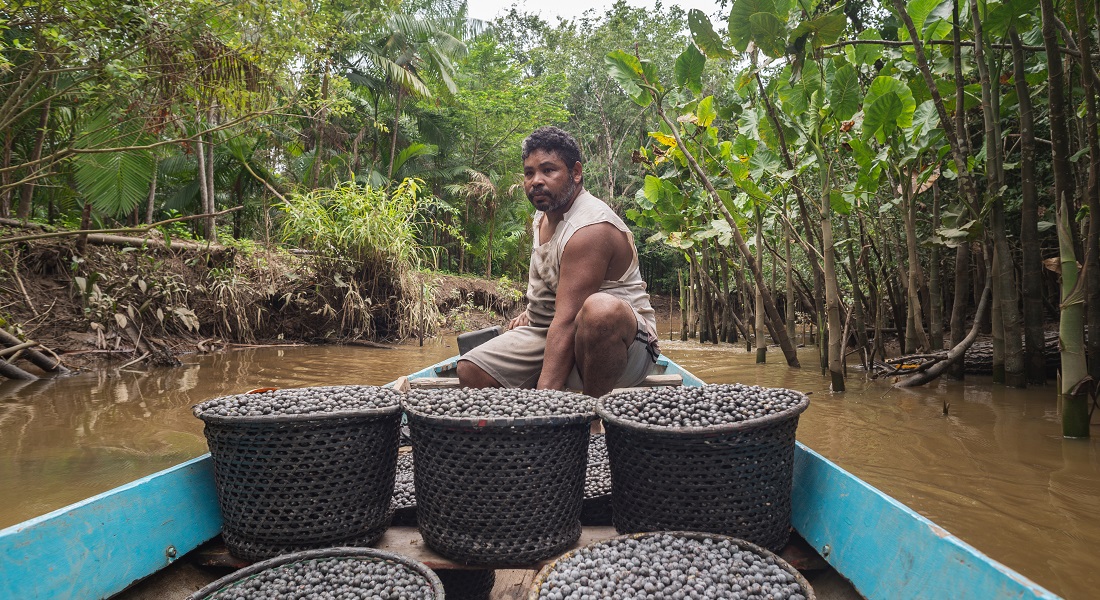
NATURE CONSERVATION
Tens of billions of dollars in forest products are being overlooked
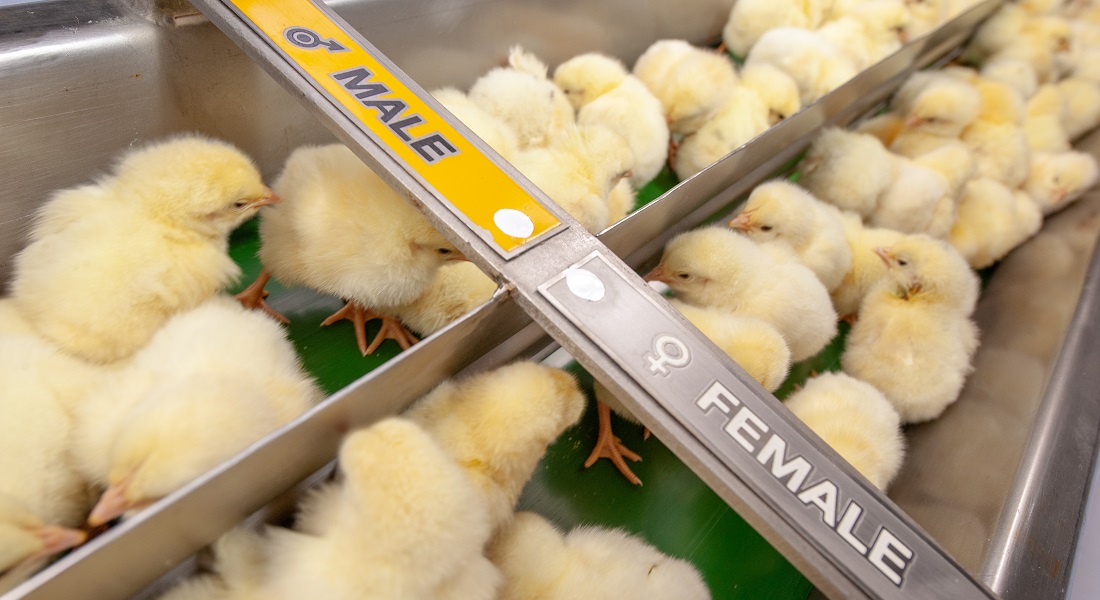
7 billion newly hatched chicks are killed every year – but a ban is not the solution
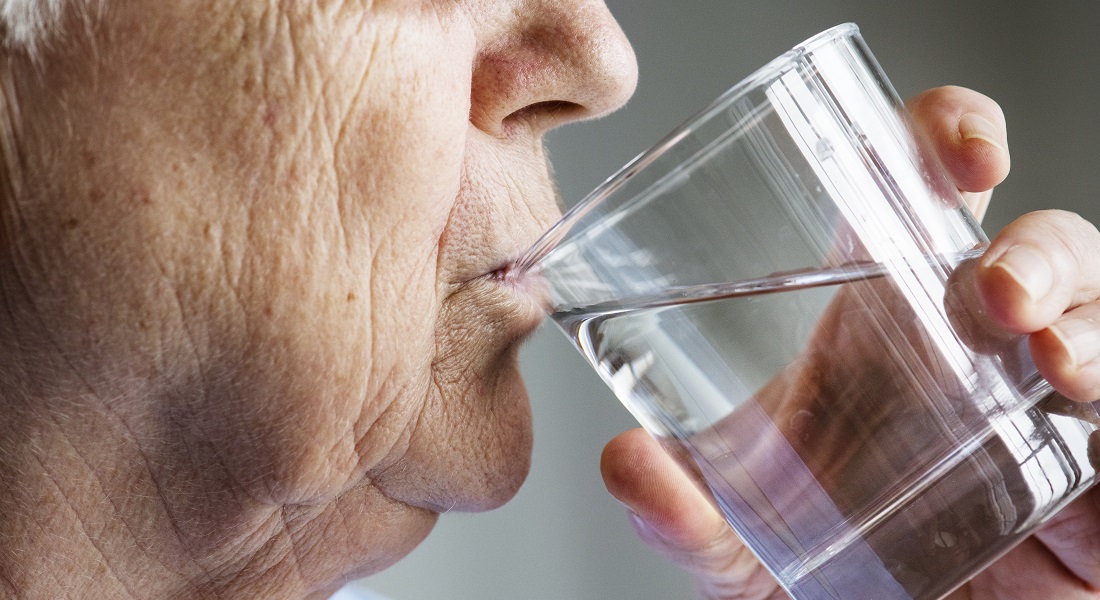
PUBLIC HEALTH
Denmark could save lives and $300 million a year by reducing nitrate in drinking water

ARTIFICIAL INTELLIGENCE
The blind use of AI in healthcare can lead to invisible discrimination
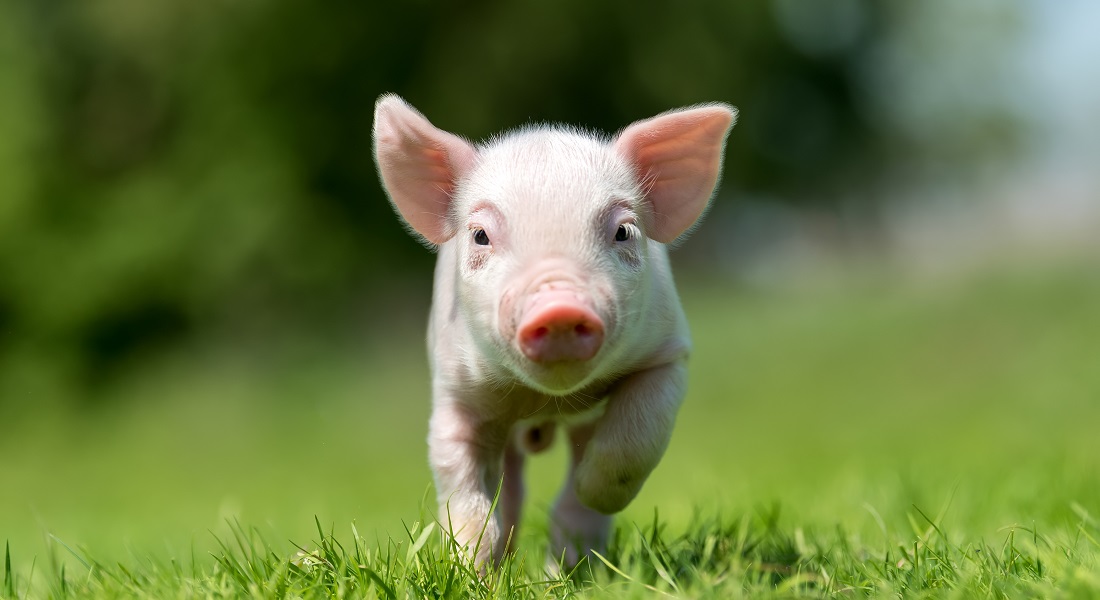
CLIMATE AND ANIMAL WELFARE
New study: Pig welfare outweighs climate concerns for consumers
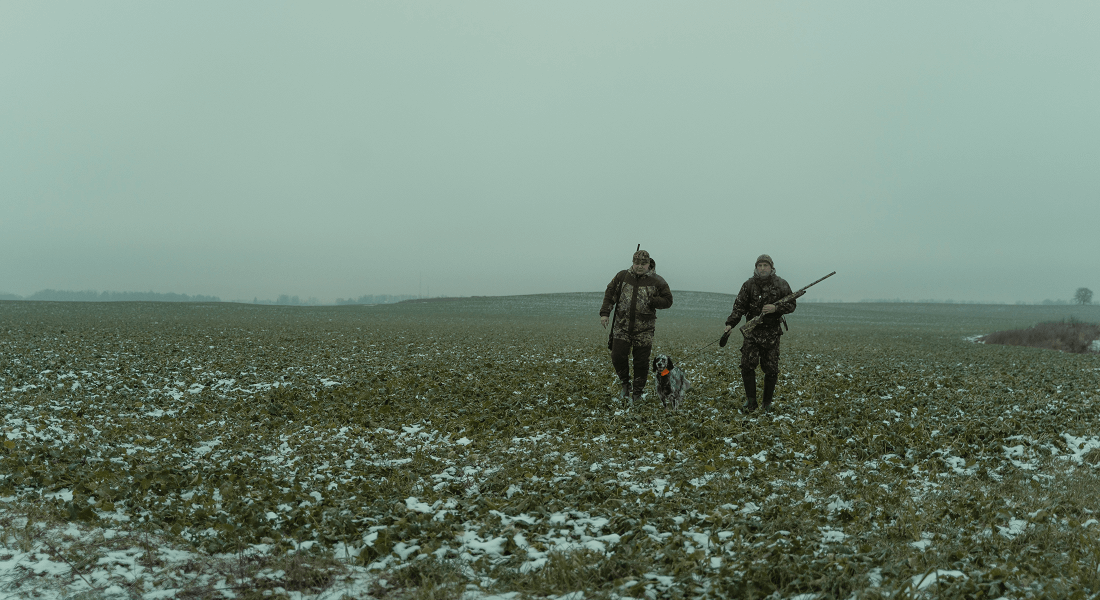
THE PRICE OF HUNTING
Nature draws the hunters out and the leases up

STUDY AT IFRO
Job opportunities.
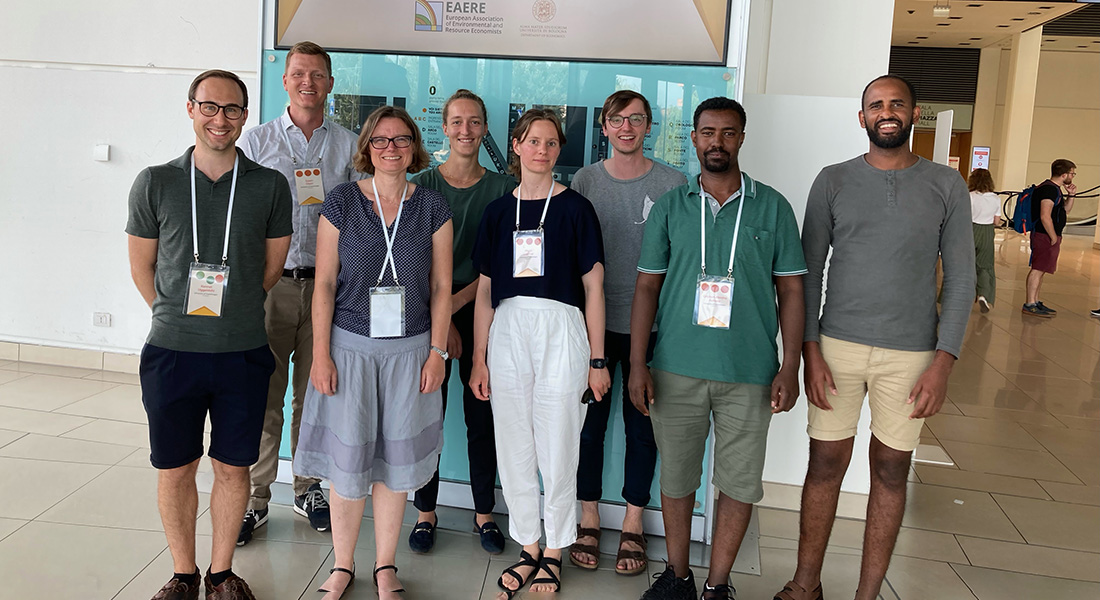
New research articles
All articles from the latest 12 months
- Bad avocados, culinary standards, and knowable knowledge. Culturally appropriate rejections of meat reduction
- Killing with care? The potentials at the sustainability/masculinity nexus in an ‘alternative’ Danish slaughterhouse
- Assessing groundwater denitrifcation spatially is the key to targeted agricultural nitrogen regulation
- Eco-guilt and eco-shame in everyday life: an exploratory study of the experiences, triggers, and reactions
- Blockchain-based Decentralized Reward Sharing: The Case of Mining Pools
- Animal geographies of industrial animal agriculture in the Pandemic Era: the tragedy and insecurity of multispecies ethnography
- Cat and dog owners’ expectations and attitudes towards advanced veterinary care (AVC) in the UK, Austria and Denmark
- Business strategies towards climate-smart agriculture in Europe: A literature review
- Why it matters how biodiversity is measured in environmental valuation studies compared to conservation science
- Horses for Courses? How rewilding might challenge the ways we care for animals
Research networks
Study programmes, public-sector services.
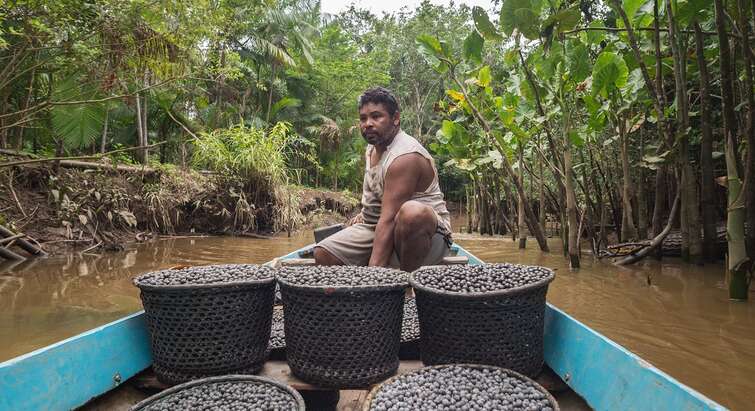
Economist: Tens of billions of dollars in forest products are being overlooked
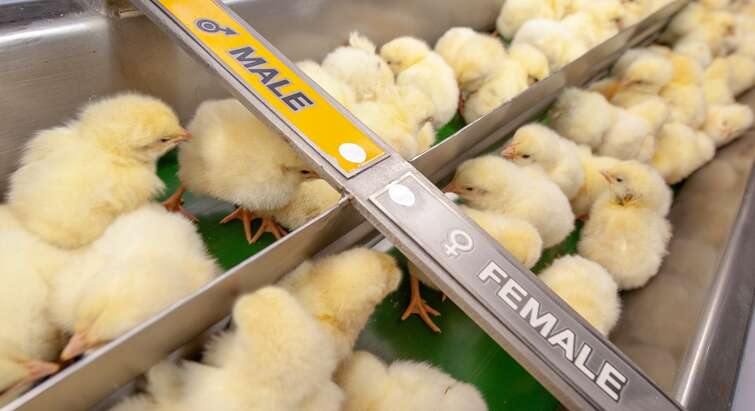
Researcher: Seven billion newly hatched chicks are killed every year – but a ban is not the solution

We can save lives and millions with less nitrate in drinking water

Show all news
Willingness to Adopt Insect Farming in Africa is Associated with Risk Attitude and Perceived Benefits
The Impact of Motorway Traffic Noise on Recreational Preference
Inaugural lecture: Anders Blok
Ester Boserup Prize 2024
Fish Stock Status and Stock Reference Points in the Global South
International Workshop in Energy and Resource Economics and Policy
Danish - IFRO.KU.DK
- Academic council
- Evaluation and accreditation
- Student Affairs
- Office of Education and Quality
- Secretariat of Private Scholarships
- Departments and cenres
- Teaching & Learning
- Annual reports
- Strategic framework agreement
- Diversity and Equality
- Health and Medical care
- Childcare and School
- International Support
- Spouse support
- Leaving Denmark (what you need to do before)
- Contact International Support
- HR Excellence in Research
- Systems for staff and students
- Rules and regulations
CBS adjusts programme portfolio to enhance quality and match the needs of the business community
Navigating the rising risk of conflict in europe - find an expert.
See all news
Environmental Humanities on a Mission: Enabling Sustainable Futures
See all events
PhD scholarship at the Department of International Economics, Government and Business, CBS
Copenhagen Business School invites applications for a PhD scholarship in Political Economy with a focus on Ukraine. The PhD scholarship is based at the Department of International Economics, Government and Business (EGB). The PhD scholarship is part of a collaboration with the Danish Institute of International Studies (DIIS), based on a grant from the Danish Ministry of Foreign Affairs. The PhD student is expected to divide work time equally between CBS and DIIS.
The project
Proposed PhD projects should be anchored in the field of political economy, political science, or a related field with a focus on the case of Ukraine. The candidate should have excellent skills in quantitative methods.
Relevant topics for the scholarship could revolve around, but are not limited to:
- Business tycoons and politics in Ukraine
- Money in politics in Ukraine
- Public administration and the interaction between state and businesses in Ukraine
- State-business relations in Ukraine
- Corruption and anti-corruption reforms in Ukraine
The expected starting date is December 1, 2024 (negotiable).
EGB is a multidisciplinary department that conducts high-quality research in the fields of international business and political science / analysis that has direct relevance to business, decision-makers and the broader public whilst also addressing contemporary societal challenges. These challenges include the consequences of inequality; the impact of technological change and digital transformation; the ethical dilemmas facing MNEs, regulatory challenges, the changes brought about by emerging markets and the rise of Asia; the consequences of global shifts for public policy, and the relationship between business and democracy. Faculty apply advanced quantitative and qualitative methods. To learn more about the research and teaching profile of the department, please visit the departmental homepage here . You should also consult the EGB PhD page here .
The department’s PhD fellows can gain much from our research seminars and other activities. At the same time, applicants should consider the overall contribution that they themselves can make to the department’s research environment. They should also demonstrate relevant experience in higher education, business, and dissemination activities.
The three-year PhD programme at CBS gives candidates the opportunity to conduct research under the supervision of EGB faculty and senior faculty at DIIS, supported by research-related PhD courses. The candidate is expected to undertake course work on quantitative methods as part of the PhD studies.
The programme is highly international, and you will be expected to participate in international research conferences and research visits abroad. Applicants should also be prepared to undertake teaching activities (CBS) and policy work/dissemination (DIIS). See the CBS homepage for more information about the PhD programme, http://uk.cbs.dk/phd .
CBS PhD graduates are not only highly regarded in higher education and research institutions but also in government and business where their research qualifications are in increasing demand. Recent EGB graduates have secured positions in leading universities, consultancies, and government agencies.
DIIS is an independent public research institution for international studies. DIIS conducts and communicates high-quality multidisciplinary research and aims to be agenda-setting in research, policy and public debate. DIIS’ research covers foreign, security and development policy. This position is part of a broader initiative to develop DIIS’ research, policy studies, and dissemination on the Ukrainian political economy as it pertains to corruption, state-business relations, and public administration. To learn more about DIIS please visit www.diis.dk/en
Application and admission requirements
To be considered the applicant should:
- have a weighted grade point average of at least 8.2 on the Danish 7-point grading scale for the bachelor's and master's degree combined or alternatively a weighted grade point average must be at least 9.5 for the master's degree alone. If the grade point average is not met, documentation for being in the top 40% of the class is also accepted. In rare cases, the grade requirement can be waived. The department will give preference to applicants with excellent grades from their universities.
- have a Master's degree corresponding to the 3 + 2 Bologna process
- have received a grade of 10 (or equivalent) for the Master's thesis according to the Danish 7-point grading scale ( https://eng.uvm.dk/general-overview/7-point-grading-scale )
- have completed the Master's programme before starting the PhD programme at CBS Pl ease note: the applicant may apply for enrolment before the completion of the Master’s degree. In this case, enrolment will be conditional upon the Master’s degree having been successfully completed by the time of enrolment.
- have an educational background in political economy, political science, or a related related field.
- have a command of academic English at a very high level. If the applicant’s Master thesis was written in English this will be considered as sufficient evidence of this.
The application
The research proposal is considered the backbone of the application and should be very carefully prepared by the applicant. It may not exceed five pages and should include the following:
- a brief explanation of the aims of the project
- an outline of relevant research questions
- a positioning of the project in an appropriate research field
- a description of the research literature within that field
- an outline/explanation of the theories to be included
- an outline/explanation of the methods to be used
- an indication of the project’s potential contribution to scientific development
- a work plan (brief) which describes the main phases in the project.
Further information can be found here: https://www.cbs.dk/en/research/phd-programmes/admission
In addition to the project description, copies of the following must be included:
- diploma for bachelor's and master's degree or other certificates at an equivalent level as well as the grade transcripts
- documentation for being in the top 40% of the class (if grade requirements are not met)
- a concise curriculum vitae (CV)
- a list of articles and publications (if applicable)
- one example of a selected written work (e.g. master's thesis)
Please note that an offer of employment is conditional upon successful enrollment in the CBS PhD School. Further information about CBS PhD scholarships and the PhD programme can be found at https://www.cbs.dk/en/research/phd-programme .
Employment and salary
A PhD scholarship runs for a period of three years and includes teaching and dissemination obligations equivalent to six months’ work (624 net working hours). The scholarship is a fully salaried position, according to the national Danish collective agreement. The monthly salary is currently approximately DKK 28,897 up to DKK 34,898, depending on seniority, and a pension contribution totaling 17.1%. The scholarship includes tuition fees, office space, course and travel costs (according to the current CBS agreement).
Salary level and employment take place in accordance with the Ministry of Finance's agreement with the Academics' Central Organization.
Recruitment procedures Selected applications will be considered by an assessment committee, which will consider whether the applicant is qualified for the position. A number from amongst those deemed qualified will be invited to present themselves and their project at a departmental seminar and attend an interview. Please note that a positive assessment does not automatically result in an interview. Applicants will be kept notified of their status in the recruitment process.
Please find guidelines and further information on scholarships and the Doctoral Programme at http://uk.cbs.dk/phd . The application must be sent via the electronic recruitment system, using the link below. Copenhagen Business School must receive all application material, including all appendices (see items above), ahead of the deadline, September 1, 2024. For further information on the project, prospective applicants can contact Professor (mso) Mogens K. Justesen (EGB) [email protected] , Head of Department Jens Gammelgaard (EGB) [email protected] , Head of Unit Lars Engberg-Pedersen (DIIS), [email protected] , or Director Peter Kragelund (DIIS), [email protected]
For information on the PhD programme at CBS, you can obtain details from the EGB’s PhD Coordinator Eddie Ashbee, [email protected]
Details about Copenhagen Business School and the department are available at www.cbs.dk
Details about DIIS are available at http://www.diis.dk/
Closing date: 1 September 2024.
Apply online
WE TRANSFORM SOCIETY WITH BUSINESS CBS is a globally recognised business school with deep roots in the Nordic socio-economic model. Our faculty has a broad focus on societal challenges, and we have earned a reputation for high-quality disciplinary and interdisciplinary research and education.
We are located at Frederiksberg and have approximately 20,000 full and part-time students, 800 full-time faculty members, 200 PhD students and 700 administrative staff, and a full portfolio of bachelor, master, MBA/EMBA, PhD and executive programmes taught in English and Danish.
Our global profile carries the obligation to address critical challenges in our research and to develop the transformational capabilities of students, graduates and business leaders via our educational activities and opportunities for lifelong learning. Complex challenges call for joint action, and therefore our strategy focuses on strengthening current and starting new partnerships with other sciences, the business community, authorities and civil society.
CBS is working continuously on becoming a diverse and inclusive organisation, and we encourage all regardless of gender identity and expression, ethnicity, religious beliefs, LGBT+ status, cultural background etc. to apply. Reach out to us if you need assistance in the application or recruitment process, if there is something we should know, or if as a person with disability you wish to make use of your preferential access.
- Fri. Apr 19th, 2024
Best Global Research Positions in Agriculture and Biosciences
PhD Scholarship in Agricultural / Environmental and Resource Economics at University of Southern Denmark
By Agristok

PhD Scholarship in Agricultural / Environmental and Resource Economics at the Department of Green Technology, University of Southern Denmark; Do you want to contribute to a cutting-edge research project focused on the environmental and social impacts of pesticide usage in Danish agriculture? And do you want a research education as a salaried and institutionally supported PhD student in Denmark? The Department of Business and Sustainability at the University of Southern Denmark in Esbjerg invites applications for a PhD scholarship as of August 1, 2024, or as agreed.
The PhD project proposal; The PhD scholarship is attached to the larger project: “Greener Fields for Safer Plates: Sustainable Pesticide Solutions (SAFEPLATE)” The project is led by Associate Professor Julia Bronnmann and is fully funded by the Carlsberg Foundation. The overall goal of the project is to foster meaningful stakeholder dialogues, to propose innovative strategies for mitigating the negative consequences of pesticides, and to inspire collective action to promote sustainability in Denmark’s agriculture. To qualify for the PhD scholarship, you are required to outline an individual research project embedded in the larger project.
The PhD project should research “ How much consumers are willing to pay for pesticide-free products or how they prioritize sustainability.” As such you will play a key role in exploring consumer preferences and willingness to pay for pesticide-free agricultural products, with a focus on sustainable farming practices. When preparing your PhD project proposal, you are strongly advised to consult the general guidelines for preparing a project proposal at the PhD School’s webpage.
We are looking for applicants possessing personal qualities such as curiosity and a strong desire to understand and solve societal challenges. You must be able work independently and—in consultation with your PhD supervisor—prioritize the different aspects of your work. Finally, you are expected to have good interpersonal skills, be interested in engaging with the national and international research community (your supervisor and the department will support you in this), be present and take part in the daily academic and social environments in Esbjerg.
The research Environment ; As a PhD Student, you will be embedded in a strong research community that is internationally recognized for excellence in research and a strong commitment to interdisciplinary methods and approaches within the social sciences and beyond. Within the Department of Business and Sustainability, your closest colleagues are those currently in the Management and Economics of Resources and the Environment (MERE) group along with members of the SDU Climate Cluster and three centers on the Esbjerg campus: The European Center for Risk & Resilience Studies, the Danish Centre for Rural Research, and the Danish Centre for Risk and Safety Management (joint with Aalborg University).
The department believes in fostering a stimulating and inspiring environment for both faculty members and students. The department’s ambition is therefore to recruit, develop, and retain talented scholars committed to both academic excellence and departmental development. The department in general offers a dynamic and entrepreneurial work environment in which collaboration, societal engagement, and team spirit are fundamental parts of the culture. Our department has activities in Kolding, Esbjerg and Sønderborg with approx. 65 employees engaged in research and teaching in the fields of resource and environmental economics, entrepreneurship, marketing, and organizational studies.
Requirements and programme structure; As a PhD Student you will follow an individual PhD plan including course work, conference participation, and knowledge dissemination and/or teaching. PhD Students typically spend three-six months in another research institution abroad. The scholarship carries a monthly salary including pension plus office facilities and financial support for conference travels and research visits abroad. Conditions of employment will be in accordance with the agreement between the Ministry of Finance and AC (the Danish Confederation of Professional Associations).
If selected for the position you will be enrolled in the PhD programme at the Faculty of Business and Social Sciences in in Economics or Business and Social Sciences. Applications are invited from candidates with a master’s degree (the 5+3 program). Your employment as a Salaried PhD Student is governed by the agreement of November 10, 2015, on Graduate Employees in government appendix 5 – protocol on PhD Research Fellows. The scholarship runs for three years. We invite applicants with a relevant master’s degree within social sciences (e.g. agricultural economics or management, environmental and resource economics or management, economics and business management). Moreover, we expect applicants to:
- Have good English skills, both in speaking and writing.
- Have good communication skills.
- Have enthusiasm and talent for academic work.
- Have knowledge in quantitative research methods and be familiar with using software such as R, Stata or the like.
- Be engaged, proactive, cooperative, be able to work independently, showing awareness and confidence in own skills and capabilities.
Contact information ; Further information about this position and its academic expectations is available from Associate Professor Julia Bronnmann , e-mail: [email protected] For further information about the PhD school, please contact the PhD School Secretariat through Charlotte Pilgaard Møller, e-mail: phdsek @sam. sdu .dk Please be aware that you must apply online through the SDU online recruitment system. If you experience technical problems, please contact [email protected] .
Application and assessment process ; An application must include:
- A project proposal, max 5 pages of 2400 characters each, including spaces, notes, appendices, bibliography etc. The total length in characters including spaces of the project description must be stated on the first page of the project description
- All documents in other languages than Danish, Swedish, Norwegian, English, or German must be translated into English. The project proposal, project abstract, and CV must be written in English. Use of large language models or related AI tools in any capacity must be disclosed in accordance with best academic practices.
- An abstract for the above project description of no more than 250 words
- Detailed CV
- A summary of your master thesis including information on the research question, motivation, employed research method, and key findings (max 1 page of 2,400 characters each, including spaces, notes, appendices, bibliography etc.)
- A certified copy of your master’s degree certificate including all examination results.
- Information on experience with teaching, dissemination, or scientific publication, if applicable
If you do not adhere to the above-mentioned specifications your application can be rejected without further assessment. The department reserves the right to arrive at a decision solely based on the material submitted. Shortlisting may be used in the assessment process.
Applications will be assessed by a committee. When the assessment committee has submitted its report, you will be emailed the part of the evaluation that concerns yourself, and you will know if you are deemed qualified for the position or not. The assessment report is subsequently forwarded to the Head of Department who assembles an appointment committee and determines if one or more of the qualified applicants should be invited to a job interview. The appointment committee will manage and complete job interviews and advise the Head of Department on which candidate should be offered appointment. Applications must be submitted electronically using the link “Apply now”. Uploaded files must be in Adobe PDF (unlocked) or Word format.
About SDU and Esbjerg International applicants will be offered Danish language training as part of the employment. The International Staff Office (ISO) at SDU provides a variety of services for new employees, guests and people who consider applying for a job at the University of Southern Denmark. Among other things, the staff answers questions concerning salary, taxation and housing. SDU is actively working with UN’s 17 sustainable development goals, based on free, critical, and independent research and education. The University wishes our staff to reflect the diversity of society and thus welcomes applications from all qualified candidates regardless of their age, gender, religious affiliation or ethnicity, or any other personal background.
Applications deadline is 01/06/2024, 00:59
See More Opportunities Like this here .
Share this:
Related post, phd fully funded position in aphid-plant-microbiome interactions at wageningen university in the netherlands, phd full scholarship in fisheries science at the fisheries and marine institute of memorial university in canada, 60 phd full scholarships available at atlantic technological university, financed by the government of ireland, leave a reply cancel reply, discover more from agristok.
Subscribe now to keep reading and get access to the full archive.
Type your email…
Continue reading
- Assistant Professor / Lecturer
- PhD Candidate
- Senior Researcher / Group Leader
- Researcher / Analyst
- Research Assistant / Technician
- Administration
- Executive / Senior Industry Position
- Mid-Level Industry Position
- Junior Industry Position
- Graduate / Traineeship
- Practitioner / Consultant
- Summer Schools
- Online Courses
- Professional Training
- Supplementary Courses
- All Courses
- PhD Programs
- Master's Programs
- MBA Programs
- Bachelor's Programs
- All Programs
- Remote/Hybrid Jobs
- Online Programs
- Online/Hybrid Conferences
- Fellowships
- Postgraduate Scholarships
- Undergraduate Scholarships
- Prizes & Contests
- Financial Aid
- Research/Project Funding
- Other Funding
- All Scholarships
- Conferences
- Exhibitions / Fairs
- All Conferences
- Economics Terms A-Z
- Career Advice
- Study Advice
- Work Abroad
- Study Abroad
- Campus Reviews
- Recruiter Advice
- University / College
- Graduate / Business School
- Research Institute
- Bank / Central Bank
- Private Company / Industry
- Consulting / Legal Firm
- Association / NGO
- All EconDirectory
- 📖 INOMICS Handbook
All Categories
All disciplines.
- Scholarships
- All Economics Terms A-Z
- EconDirectory
- All 📖 INOMICS Handbook

PhD Scholarship in Agricultural / Environmental and Resource Economics
07 april 2024, 31 may 2024, phd candidate, postgraduate scholarships, associate professor julia bronnmann.
Do you want to contribute to a cutting-edge research project focused on the environmental and social impacts of pesticide usage in Danish agriculture? And do you want a research education as a salaried and institutionally supported PhD student in Denmark?
The Department of Business and Sustainability at the University of Southern Denmark in Esbjerg invites applications for a PhD scholarship as of August 1, 2024, or as agreed. For more information about the department, please visit the website.
The PhD project proposal
The PhD scholarship is attached to the larger project: “Greener Fields for Safer Plates: Sustainable Pesticide Solutions (SAFEPLATE)” The project is led by Associate Professor Julia Bronnmann and is fully funded by the Carlsberg Foundation. The overall goal of the project is to foster meaningful stakeholder dialogues, to propose innovative strategies for mitigating the negative consequences of pesticides, and to inspire collective action to promote sustainability in Denmark's agriculture. To qualify for the PhD scholarship, you are required to outline an individual research project embedded in the larger project.
The PhD project should research “ How much consumers are willing to pay for pesticide-free products or how they prioritize sustainability.” As such you will play a key role in exploring consumer preferences and willingness to pay for pesticide-free agricultural products, with a focus on sustainable farming practices.
When preparing your PhD project proposal, you are strongly advised to consult the general guidelines for preparing a project proposal at the PhD School’s webpage.
We are looking for applicants possessing personal qualities such as curiosity and a strong desire to understand and solve societal challenges. You must be able work independently and—in consultation with your PhD supervisor—prioritize the different aspects of your work. Finally, you are expected to have good interpersonal skills, be interested in engaging with the national and international research community (your supervisor and the department will support you in this), be present and take part in the daily academic and social environments in Esbjerg.
The research Environment
As a PhD Student, you will be embedded in a strong research community that is internationally recognized for excellence in research and a strong commitment to interdisciplinary methods and approaches within the social sciences and beyond. Within the Department of Business and Sustainability, your closest colleagues are those currently in the Management and Economics of Resources and the Environment (MERE) group along with members of the SDU Climate Cluster and three centers on the Esbjerg campus: The European Center for Risk & Resilience Studies, the Danish Centre for Rural Research , and the Danish Centre for Risk and Safety Management (joint with Aalborg University).
The department believes in fostering a stimulating and inspiring environment for both faculty members and students. The department’s ambition is therefore to recruit, develop, and retain talented scholars committed to both academic excellence and departmental development.
The department in general offers a dynamic and entrepreneurial work environment in which collaboration, societal engagement, and team spirit are fundamental parts of the culture. Our department has activities in Kolding, Esbjerg and Sønderborg with approx. 65 employees engaged in research and teaching in the fields of resource and environmental economics, entrepreneurship, marketing, and organizational studies.
Requirements and programme structure
As a PhD Student you will follow an individual PhD plan including course work, conference participation, and knowledge dissemination and/or teaching. PhD Students typically spend three-six months in another research institution abroad. The scholarship carries a monthly salary including pension plus office facilities and financial support for conference travels and research visits abroad. Conditions of employment will be in accordance with the agreement between the Ministry of Finance and AC (the Danish Confederation of Professional Associations).
If selected for the position you will be enrolled in the PhD programme at the Faculty of Business and Social Sciences in in Economics or Business and Social Sciences . Applications are invited from candidates with a master’s degree (the 5+3 program). Your employment as a Salaried PhD Student is governed by the agreement of November 10, 2015, on Graduate Employees in government appendix 5 – protocol on PhD Research Fellows. The scholarship runs for three years.
We invite applicants with a relevant master’s degree within social sciences (e.g. agricultural economics or management, environmental and resource economics or management, economics and business management). Moreover, we expect applicants to:
- Have good English skills, both in speaking and writing.
- Have good communication skills.
- Have enthusiasm and talent for academic work.
- Have knowledge in quantitative research methods and be familiar with using software such as R, Stata or the like.
- Be engaged, proactive, cooperative, be able to work independently, showing awareness and confidence in own skills and capabilities.
PhD: Applicants can read the overall qualification criteria for a PhD Scholar in the Scholarly Qualification Guidelines
Contact information
Further information about this position and its academic expectations is available from Associate Professor Julia Bronnmann , e-mail: [email protected]
For further information about the PhD school, please contact the PhD School Secretariat through Charlotte Pilgaard Møller, e-mail: phdsek @sam. sdu .dk
Please be aware that you must apply online through the SDU online recruitment system. If you experience technical problems, please contact [email protected] .
Application and assessment process An application must include:
- Application form found on our web page .
- A project proposal, max 5 pages of 2400 characters each, including spaces, notes, appendices, bibliography etc. The total length in characters including spaces of the project description must be stated on the first page of the project description
- All documents in other languages than Danish, Swedish, Norwegian, English, or German must be translated into English. The project proposal, project abstract, and CV must be written in English. Use of large language models or related AI tools in any capacity must be disclosed in accordance with best academic practices.
- An abstract for the above project description of no more than 250 words
- Detailed CV
- A summary of your master thesis including information on the research question, motivation, employed research method, and key findings (max 1 page of 2,400 characters each, including spaces, notes, appendices, bibliography etc.)
- A certified copy of your master’s degree certificate including all examination results.
- Information on experience with teaching, dissemination, or scientific publication, if applicable
If you do not adhere to the above-mentioned specifications your application can be rejected without further assessment. The department reserves the right to arrive at a decision solely based on the material submitted.
Shortlisting may be used in the assessment process.
Applications will be assessed by a committee. When the assessment committee has submitted its report, you will be emailed the part of the evaluation that concerns yourself, and you will know if you are deemed qualified for the position or not. The assessment report is subsequently forwarded to the Head of Department who assembles an appointment committee and determines if one or more of the qualified applicants should be invited to a job interview. The appointment committee will manage and complete job interviews and advise the Head of Department on which candidate should be offered appointment. Applications must be submitted electronically using the link "Apply now". Uploaded files must be in Adobe PDF (unlocked) or Word format.
Read the guideline for applicants .
Each field can only contain a single file of max. 10 Mb.b.
About SDU and Esbjerg
International applicants will be offered Danish language training as part of the employment. The International Staff Office (ISO) at SDU provides a variety of services for new employees, guests and people who consider applying for a job at the University of Southern Denmark. Among other things, the staff answers questions concerning salary, taxation and housing. Additional information about working in Denmark can also be found at Work in Denmark .
Read more on: SDU’s employment website
SDU is actively working with UN's 17 sustainable development goals, based on free, critical, and independent research and education. The University wishes our staff to reflect the diversity of society and thus welcomes applications from all qualified candidates regardless of their age, gender, religious affiliation or ethnicity, or any other personal background.
More Information
Visit Website
Degnevej 14
6705 Esbjerg , Denmark
- PhD Scholarship
- PhD Position
- Danish Agriculture
- PhD in Denmark
- Agricultural Economics
Login to your account
Email Address
Forgot your password? Click here.
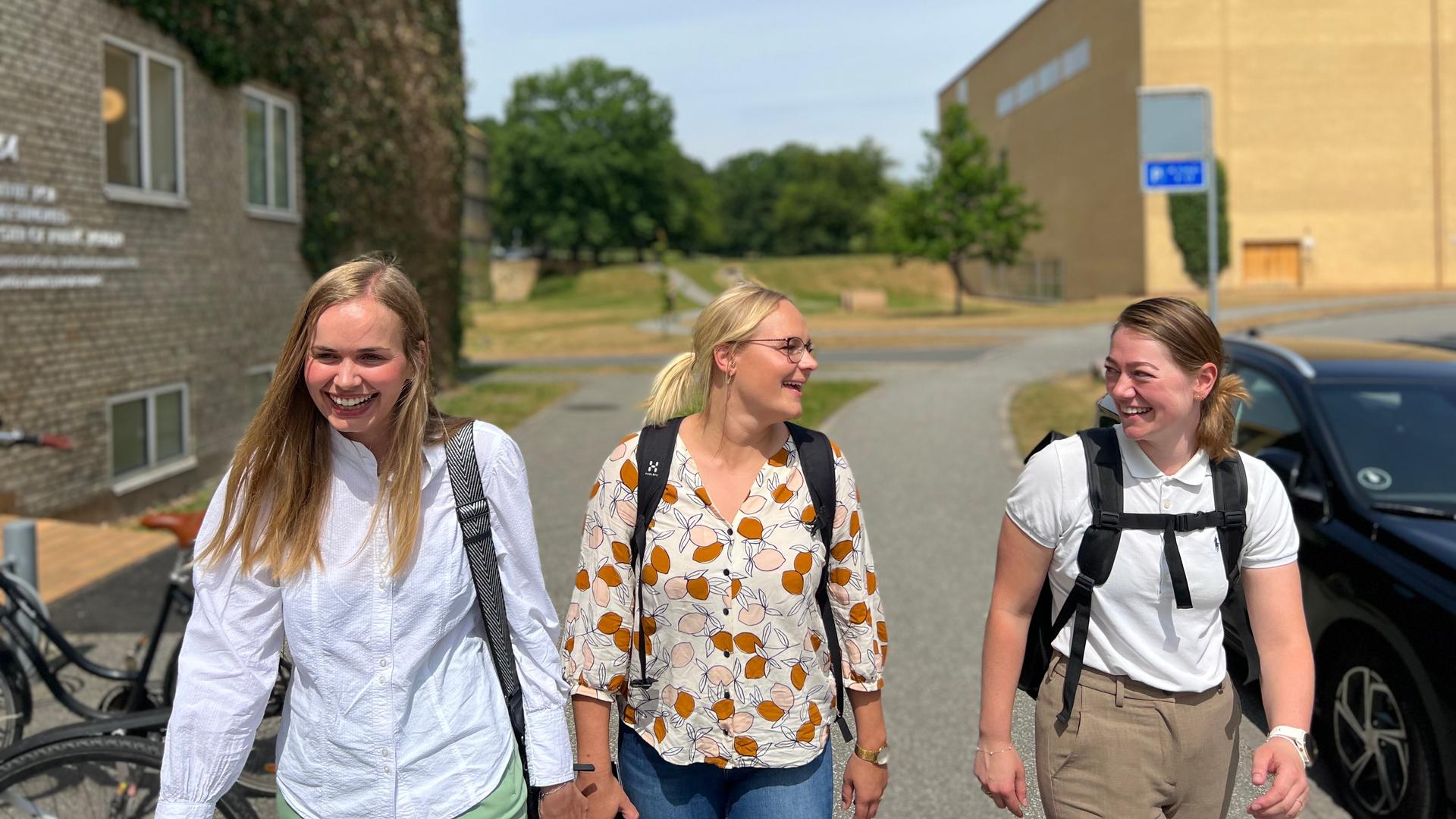
Denmark pays students to go to college. But free education does have a price.
Borrowers in the US and the UK rack up the highest debt in the world. In Denmark, tuition is free and students are given grants to pay for things like food and housing. Hardly anyone takes out loans, but free education comes with a price.
- By Joshua Coe
Students walk through the University Park in Aarhus, Denmark, on June 20, 2023. Public universities in Denmark like the one in Aarhus are free for Danes, permanent residents in the country and students from the EU.
Hannah Hirschsprung Lange, who is finishing her fourth and final semester studying bioengineering at Aarhus University in Jutland, Denmark, receives about $800 each month in financial support from the Danish government.
“It means I don’t have to work too much besides school,” Hirschsprung Lange said. “It helps with paying the rent and food, and then, you don’t have to think too much about it.”
And like most Danes, she will graduate owing nothing. That’s because in Denmark — as in at least a dozen European countries — tuition at public universities and most colleges is free, and students are paid to go to school as if it’s a job.
The Danish grant system, known as the Statens Uddannelsesstøtte, or SU for short , is available for students for up to six years. The amount of money a student receives depends on how much they earn working on the side. In the case of illness or pregnancy, students can apply for extra financial help.
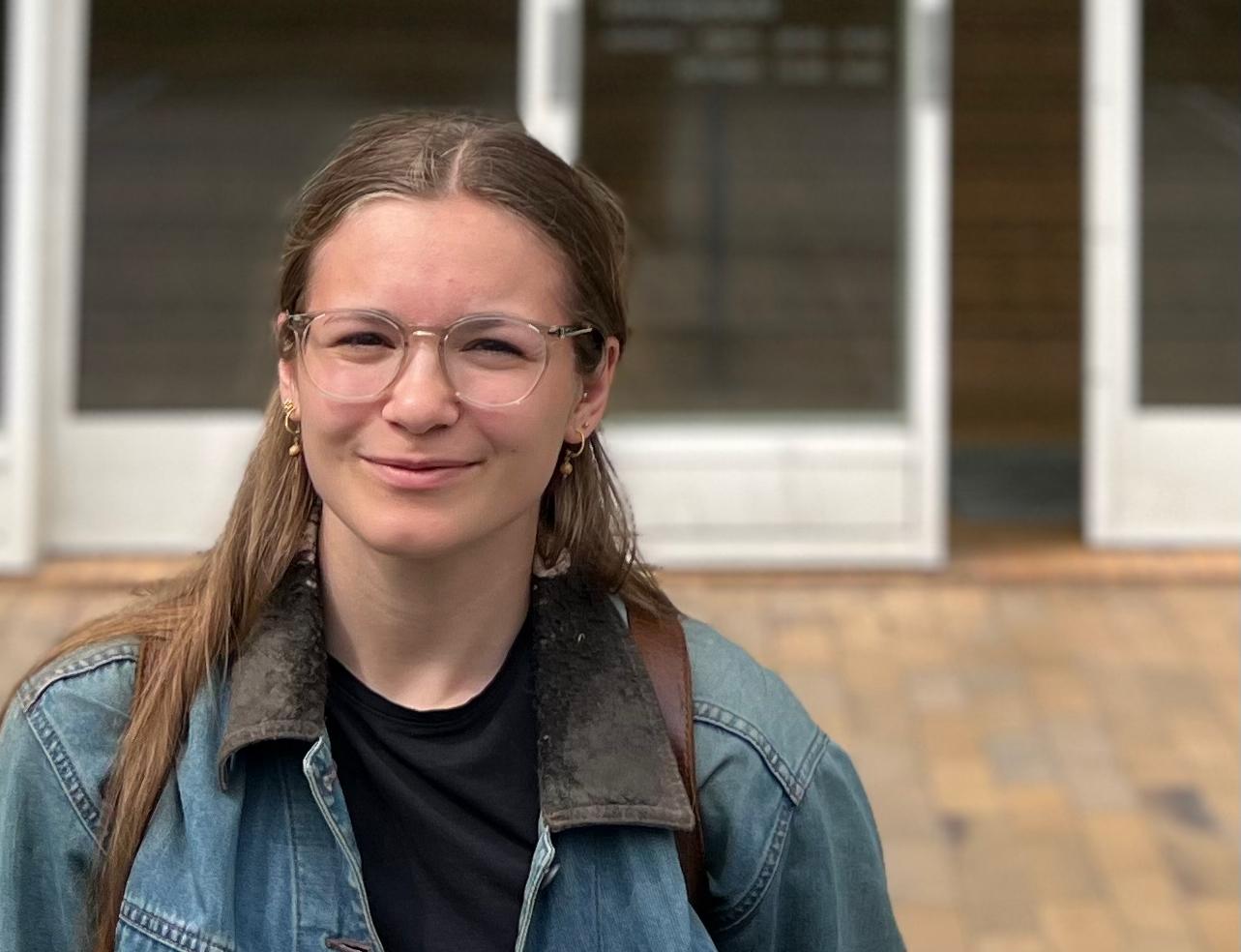
With student debt repayments back on the horizon for college graduates in the US , Hirschsrpung Lange said that the American higher education system seems broken because of “the fact that you have to go into so much student debt.”
Still, many Danish students like Hirschsprung Lange work part time to earn extra spending money for things like vacations and clothes. And some students do take out government loans, but they aren’t always used for school.
For Astrid Skifter Madsen, a first-year chemical engineering master’s student at Aarhus University, a loan enabled her to go to Asia recently.
“I needed a long summer holiday to Thailand, Vietnam and Cambodia,” she explained. “So, I needed some money to cover that.”
Madsen said that she’s not worried about being able to finish her studies and paying back the loan.
The Danish government subsidizes student loans with a low interest rate, and she’ll have up to 15 years to pay it off.
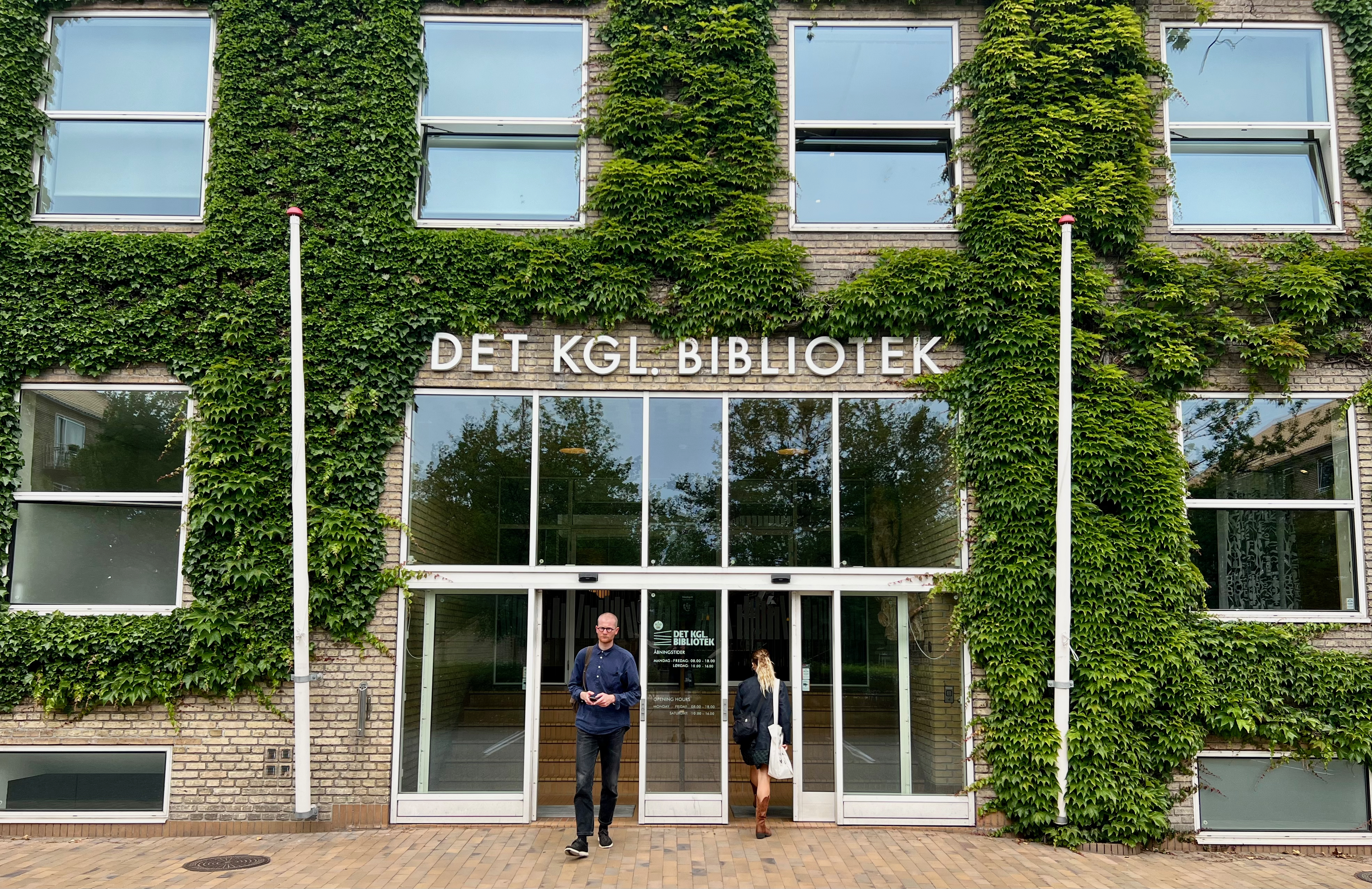
Many Danes say that the generous subsidies and the free tuition is money well-spent.
“I mean, in the end, in a sense, you pay it back later,” said physics student Tobias Washeim, 22, who’s finished his third year of his bachelor’s degree at Aarhus University. “And I think it takes the stress off being a student.”
Danes do end up paying for the free education and the SU system through the country’s steep taxes that can carve out over 50% of one’s income. (It’s a progressive tax system , so the more you earn, the more you pay.) But polling in the country has shown satisfaction with the high taxes, which not only contribute to free education, but also free health care and pensions.
“You might pay less taxes and you get a higher income in the US, but I don’t really mind paying [those] high taxes,” Washeim added.
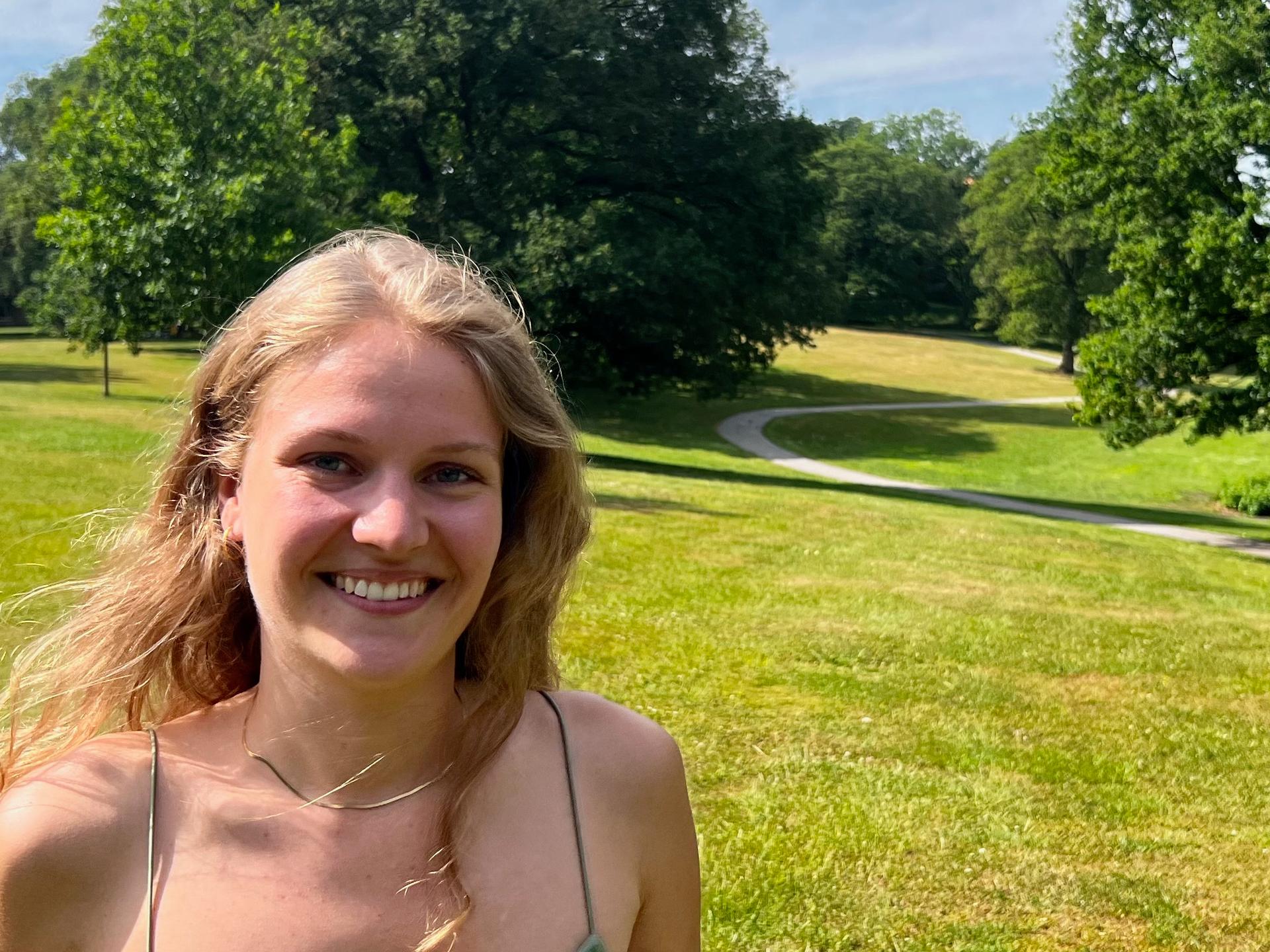
The SU system came about 50 years ago at a time when the country of just 6 million decided to prioritize a well-educated population, explained Philipp Schröder, who teaches economics and business at Aarhus University.
“It’s a small open economy [that] has virtually no raw materials here apart from brains,” Schröder said. “And so, that is a political agenda that has always been baked-in for changing governments [in Denmark]. So, education is for free.”
The idea was, in part, to make higher education an option for anyone in Denmark, regardless of their socioeconomic status, explained Fane Groes, an associate professor at Copenhagen Business School.
Before that, the SU system saw many students stuck with heavy loan burdens and high interest rates. But despite the goal of leveling the playing field for all Danes, Groes said, it hasn’t exactly worked out that way: “We know that it is the more-educated children and the richer children who actually go to college or university.”
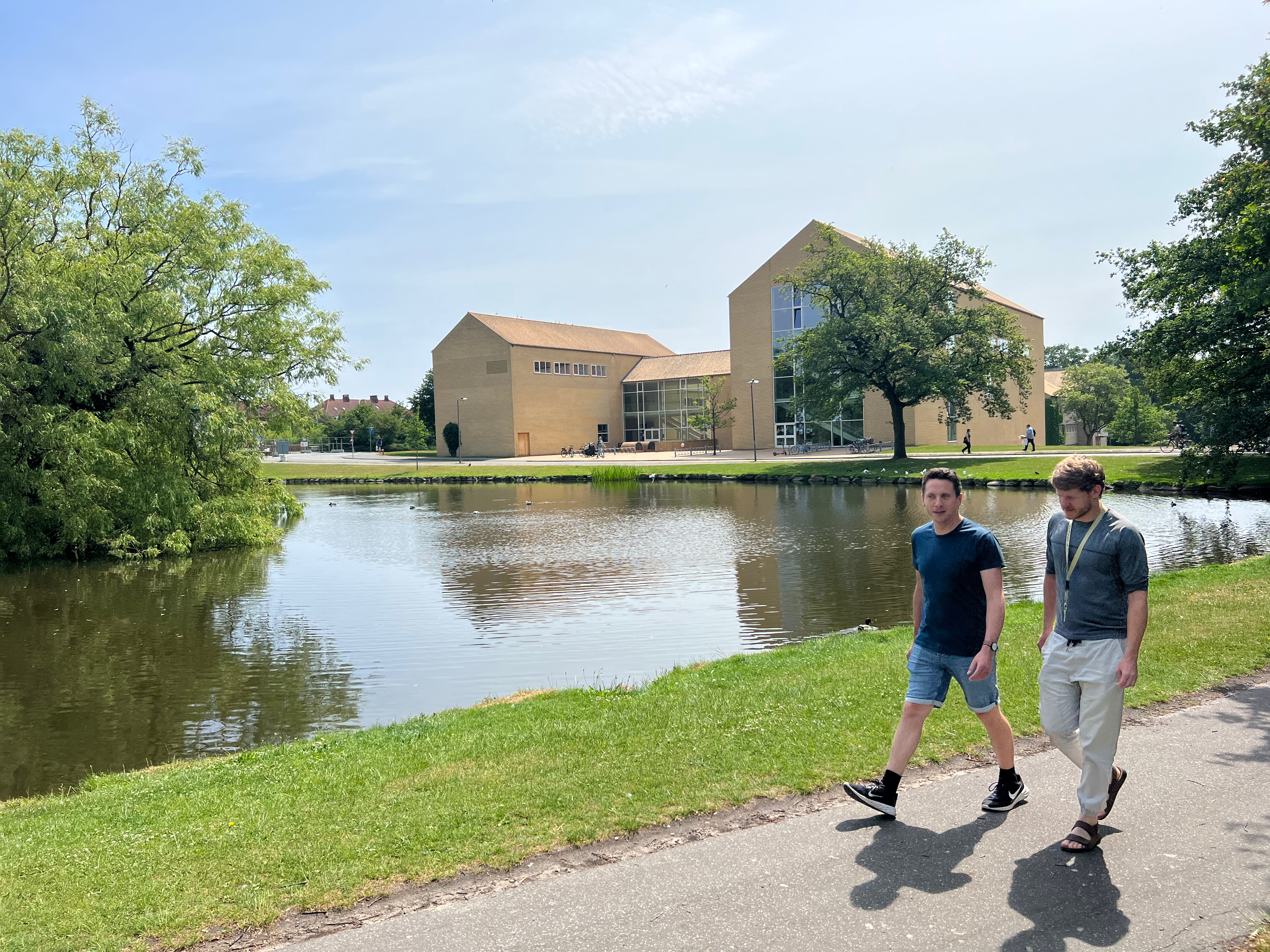
A 2021 study showed that for Danes born in 1987, the social heritage of education attainment is at the same level as in the US . And while the SU costs Denmark a little more than 1% of the gross national product , there are grumblings inside and outside of the government about the system. For one, because Denmark is part of the European Union, it has to offer SU grants to students from other EU countries.
Politicians have argued that this mandate has seen little returns, with a minority of internationals staying in Denmark after graduating . And, they say that too many students take too long to get through school and don’t go into fields that the country needs.
“If you allocate resources and talent mass sensibly in an economy, you don’t want that to happen — that people train for something that no one in the job market wants,” said Schröder, who sat on a government commission tasked with suggesting higher education reforms. “Then, they have to settle for lower-skilled jobs where they can’t use the investments they have taken.”
Earlier this summer, the government made some of the biggest reforms to higher education, controversially shortening or restructuring the length of a third of the country’s 500 master’s programs from two-year degrees to one year and three months .
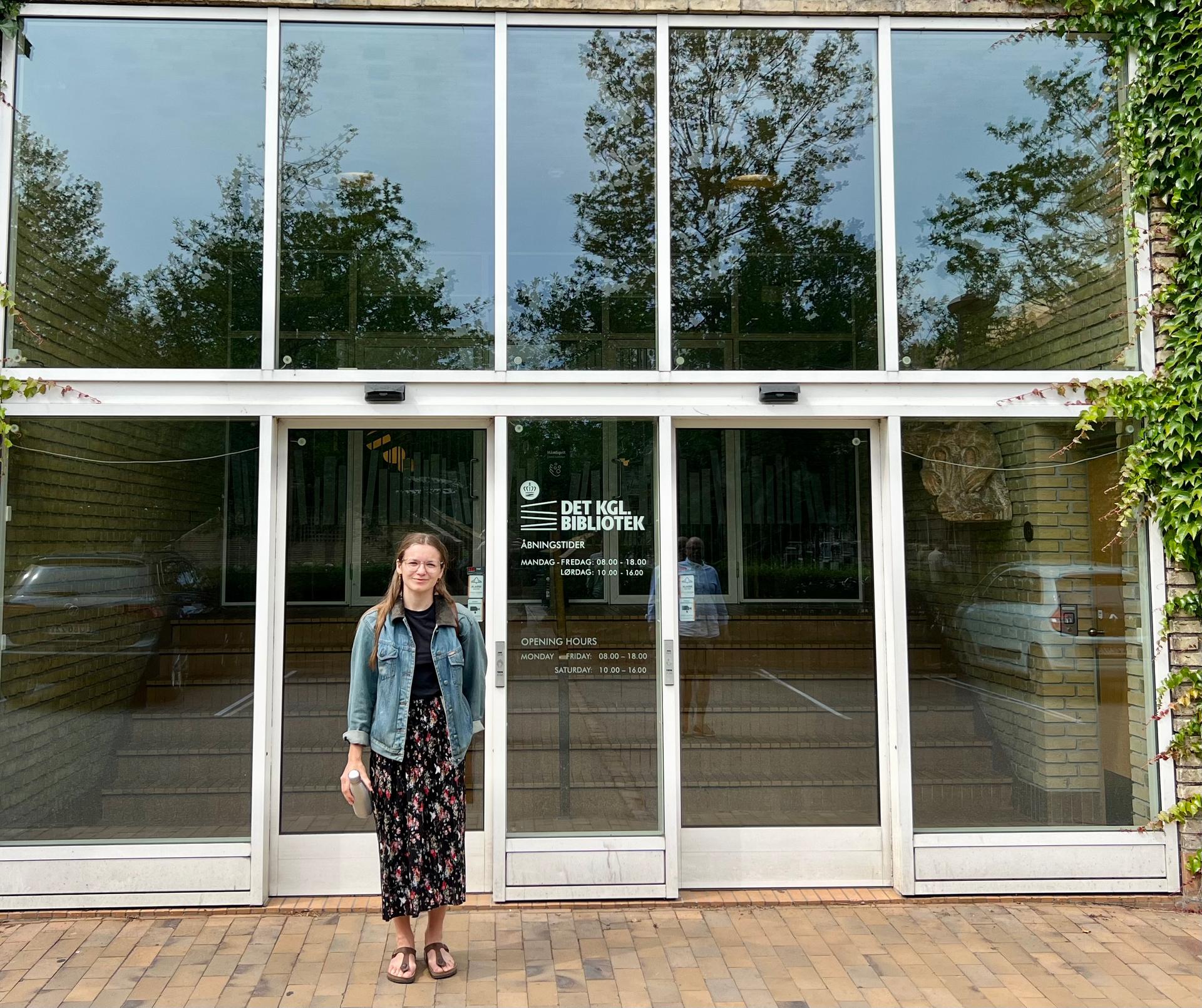
The government said it will reallocate the funds to training for nursing, teaching and social work — fields that have recently experienced staff shortages in Denmark . But there was no government proposal to get rid of free tuition for undergraduates. Nor did they touch payments that go to students.
The move is expected to mainly impact master’s degrees in the humanities and social sciences .
Sigrid Strunge Vetter, who recently completed a psychology degree at Aarhus, said she couldn’t imagine jamming two years of study into one year and three months.
“I have a two-year master’s degree, and I still feel like I’m having massive gaps and there’s lots of knowledge I haven’t gathered,” she said. “So, how they want to be able to cut that down to half, I simply can’t fathom.”
Overall, Strunge Vetter said that she is not against reforms, though. She said it’s good for the state to regulate higher education to correspond with market needs to keep unemployment rates down.
But she doesn’t want the government to chip away at the right of every Dane to get a higher education.
“It ensures that everybody, independently of their financial and socio-economic background can attend whatever studies they want to attend,” which she hopes will be the case for generations of Danes to come.
Sign up for The Top of the World, delivered to your inbox every weekday morning.
You are using an outdated browser. Please upgrade your browser to improve your experience.
- itslearning Access to your courses
- mySDU For students at SDU
- SDUmail - Webmail service Outlook Web Mail
- SDU Student Self-Service Course registration, exams and results
- Library See your status, reservations and renew loans
- DigitalExam Login to DigitalExam
- itslearning SDU's e-learn platform
- SDUNet.dk SDU's intranet
- Find person Search for contact information on employees
- Directory Finding your way at the University of Southern Denmark
- Reset default page
- Set as default page
- Find person
news about names
Professor of health economics with a focus on general practice
Line bjørnskov pedersen has been appointed professor of health economics at the danish centre for health economics (dache), department of public health, university of southern denmark. she is also employed at the research unit of general practice in odense and esbjerg..
By Marianne Lie Becker, [email protected] , 4/10/2024
In the professorship, Line Bjørnskov Pedersen will continue to contribute to research on the organisation of general practice with a special focus on how new practice types affect well-being, patient satisfaction and treatment quality, as well as how market changes, such as new medical breakthroughs and fee changes, affect patient treatment and the role motivation and well-being play in this context.
Line Bjørnskov Pedersen’s research area is organisation in general practice and the motivation and treatment behaviour of general practitioners (GPs). Over the years, she has conducted research on the impact of the organisation in general practice on the well-being of healthcare professionals, patient satisfaction and treatment quality. Among other topics, Line Bjørnskov Pedersen has researched the impact of practice types on the choice of practice, task delegation between GPs and practice staff, changes in the fee structure and user payment, the prevalence of defensive medicine and the treatment behaviour of retiring GPs.
Line Bjørnskov Pedersen is particularly interested in how GPs react to organisational changes, such as accreditation, quality clusters, the introduction of new clinical guidelines and fee structure changes, as well as market changes, such as major medical breakthroughs and COVID-19. She is particularly interested in understanding the impact of motivation and well-being on the responses to such market changes.
The theoretical framework of Line Bjørnskov Pedersen’s research is principal-agent theory and various motivational theories, such as self-determination theory and crowding theory.
Line Bjørnskov Pedersen graduated from the University of Southern Denmark with a bachelor’s degree in business administration (HA) from 2006 and a master’s degree in economics (cand.oecon.) from 2008. In 2012, she was awarded a PhD in Economics at the University of Southern Denmark. Line Bjørnskov Pedersen was employed in a half-time position as assistant professor and later as associate professor at what is now known as the Danish Centre for Health Economics (DaCHE). At the same time, she was employed in a half-time position as a senior researcher at the Research Unit for General Practice in Odense/Esbjerg (FEA). Line Bjørnskov Pedersen will continue to hold a half-time position at DaCHE and a half-time position at FEA, where she is also head of the research group ‘Organisation in general practice’.
Over the years, Line Bjørnskov Pedersen has had international collaborations with researchers from universities in Norway, the Netherlands, England, Scotland and the USA, as well as research stays in Australia, and she has sat on a number of international assessment and scientific committees. In 2023, Line Bjørnskov Pedersen was appointed as an external reviewer for the European Research Council, and one of her articles on GP motivation was named among the top 10 most read articles by a prestigious and recognised journal. From 2022 to 2023, Line Bjørnskov Pedersen was affiliated as an expert with the Council for a new reimbursement structure in general practice. In 2018, Line Bjørnskov Pedersen was awarded the Magda and Svend Aage Friedrichs Award for her contribution to research in general practice. Line Bjørnskov Pedersen has been editor of the Nordic Journal of Health Economics since 2018.
Line Bjørnskov Pedersen was born in Odense on 6 December 1981. Today, Line Bjørnskov Pedersen lives in Haarby on the southwest of Funen with her husband and her dogs. In her spare time, she plays soccer in Ubberud Sports Association, and she enjoys spending time in nature when visiting the family’s ‘ødegård’ (traditional Swedish holiday cottage) in the forests of Southern Sweden.
Mød forskeren
Line Bjørnskov Pedersen has been appointed professor of health economics at the Danish Centre for Health Economics (DaCHE), Department of Public Health, University of Southern Denmark
Back to the news list
- Department of Economics
Study programmes
The Department of Economics at the University of Copenhagen specialises in Economics, Econometrics, Micro- and Macroeconomics and related areas. Our courses are highlevel courses focused on economic theory and applications.
We offer a wide array of elective courses which include Behavior Economics, Labour Economics, Strategic Management, Finance-related courses etc.
Application and admission
You can either be admitted as a full degree master's student, an exchange student or a fee-paying guest student. Please read about the different types of admission in the left hand menu or in the list below.
Master's Programme - Admission, profile and structure
Phd programme - introduction, enrolment, courses, credit studies - earn additional ects, open university - admission, courses, tuition fees, summer school - summer courses in economics, master’s degree programmes offered in collaboration with other faculties at ucph.
Master of Science (MSc) in Mathematics-Economics (taught in English)
Master of Science (MSc) in Global Development (taught in English)
For students

Info for prospective students
Studying Economics in Copenhagen Opportunities for Master and Exchange Students
Read our publication here .

IMAGES
VIDEO
COMMENTS
The PhD programme in Economics is an advanced education in research, aiming at bringing the student to the international research frontier, and at developing the student's ability to create research contributions. The PhD programme is part of the Copenhagen Graduate School in Social Sciences. The PhD programme consists of a course-work part ...
PhD programme. The PhD programme in Economics and Business Economics is an internationally recognised research training programme. The intention is to bring the students to the international research frontier. We specialise in a wide range of economic fields, including macroeconomics, theoretical and empirical labour economics, finance ...
THE PHD PROGRAM IN ECONOMICS The aim of our PhD program is to train PhD candidates at a high international level in order to ultimately ensure that they get careers at great business schools and universities around the globe. In addition to learning how to conduct research at an international level, students should acquire a broad theoretical ...
Postdoc in Enhancing Circular Economy through Improved Construction Site Waste Management (2024-224-05792) Lindhard [email protected] , Tel.+45 25397266. Qualification Requirements: Appointment as a Postdoc requires scientific qualifications at the PhD level or similar scientific qualifications. Emphasis will be.
With a PhD in economics from the University of Southern Denmark you have a broad range of career opportunities. Former students are now employed at Danish and international universities and international organisations and businesses such as The Danish National Bank, Danish Industry, the EU Commission, University of Copenhagen, Novo Nordic ...
The programme cooperates with other Danish PhD programmes in Economics and Finance through the network Danish Graduate Programme in Economics . The main purpose of this network is to offer specialised field courses to PhD students; also the network organises annual workshops for the PhD students in the participating programmes ...
02/09/2021. Copenhagen Business School invites applications for PhD scholarships in Economics. We welcome research proposals in all areas of economics. The Department will give priority to applicants with high grades from their universities. The Department of Economics at CBS provides research, teaching and knowledge transfer within the core ...
In Denmark you must apply for PhD programmes in writing via advertised projects and scholarships. Usually, you either apply for an opportunity with a pre-defined research topic, or you propose your own research ideas. You also have to include a transcript of your grades for your bachelor's and master's degrees with documentation of your ...
Finance Seminar: Alessandro Previtero, Kelley School of Business. 18 Apr. Thursday 18 April 2024, at 12:45 Fuglesangs Allé 4, 8210 Aarhus V, Building 2630 (K), Room 101. Title: The Value of Non-Alpha Services.
The Department of Economics offers research, teaching, seminars and conferences within the field of economics. ... PhD programmes; Research centres; News. Iconic savanna mammals face genetic problems due to fences and roads. 2024.04.12. ... Denmark Contact: The administration Economics @econ.ku.dk Tel: +45 32 32 10 00.
PhD programme. CBS covers all of the classic fields within business economics and business languages connected with the management and operation of public and private companies - for example, marketing, finance, accounting, management accounting and organisation. In addition, research is carried out in a number of subjects necessary for the ...
PhD programme. Danmarks Nationalbank offers several fellowships to support students enrolled in a PhD programme in economics or finance. Resident students are hosted at Danmarks Nationalbank for the duration of their PhD programme and collaborate with economists on research projects. PhD fellows will be mentored by the academic advisers on the ...
As a PhD student at the University of Southern Denmark, you will get: A PhD programme at the highest international level. Broad contact interface with national and international research environments. Opportunities for overseas study visits or courses at recognised universities. A good research environment with close links to experienced ...
Admission. The admission requirement for the M.Sc. in Economics (cand.oecon.) is the Danish three-year. BSc in Economics, BSc in Economics and Business Administration (HA) or. BSc in Mathematics and Economy. Applicants with other relevant backgrounds can also apply. The applications will be evaluated on an individual basis.
Department of Food and Resource Economics (IFRO) of the University of Copenhagen is inviting applications for PhD scholarships to start up from 1 September 2022 or later.. IFRO carries out pure basic and applied social science research and have a number of educational and public sector advisory service responsibilities within our thematic fields.We are characterized by a high involvement in ...
Department of Food and Resource Economics, University of Copenhagen. 5,012 followers. 3mo. 📢 NEW HEAD OF SECTION AT IFRO 🌎 We're thrilled to announce that Professor Carsten Smith-Hall has assumed the role of new Head of Section for Global Development. Carsten is a leading figure in research and teaching on environmental products and ...
The PhD scholarship is based at the Department of International Economics, Government and Business (EGB). The PhD scholarship is part of a collaboration with the Danish Institute of International Studies (DIIS), based on a grant from the Danish Ministry of Foreign Affairs. The PhD student is expected to divide work time equally between CBS and ...
The Department of Business and Sustainability at the University of Southern Denmark in Esbjerg invites applications for a PhD scholarship as of August 1, 2024, or as agreed. The PhD project proposal; The PhD scholarship is attached to the larger project: "Greener Fields for Safer Plates: Sustainable Pesticide Solutions (SAFEPLATE)" The ...
Vacant PhD scholarships in Economics are announced once a year, with application deadlines at around May 1. ... University of Copenhagen Øster Farimagsgade 5, building 26 DK-1353 Copenhagen K Denmark Contact: The administration Economics @econ.ku.dk Tel: +45 32 32 10 00. University of Copenhagen. Management; Administration; Faculties; Departments;
The PhD scholarship is attached to the larger project: "Greener Fields for Safer Plates: Sustainable Pesticide Solutions (SAFEPLATE)" The project is led by Associate Professor Julia Bronnmann and is fully funded by the Carlsberg Foundation. The overall goal of the project is to foster meaningful stakeholder dialogues, to propose innovative ...
The Department of Economics is home to a collaborative, creative and curious group of researchers who explore cutting-edge topics within Economics and Data Science. We recruit Danish and international colleagues to ensure internationally competitive education programmes and research output at a high international level.
In Denmark, tuition is free and students are given grants to pay for things like food and housing. Hardly anyone takes out loans, but free education comes with a price. The World. August 29, 2023. By Joshua Coe. Students walk through the University Park in Aarhus, Denmark, on June 20, 2023. Public universities in Denmark like the one in Aarhus ...
Line Bjørnskov Pedersen has been appointed professor of health economics at the Danish Centre for Health Economics (DaCHE), Department of Public Health, University of Southern Denmark. She is also employed at the Research Unit of General Practice in Odense and Esbjerg. By Marianne Lie Becker, [email protected], 4/10/2024.
The Department of Economics at the University of Copenhagen specialises in Economics, Econometrics, Micro- and Macroeconomics and related areas. Our courses are highlevel courses focused on economic theory and applications. We offer a wide array of elective courses which include Behavior Economics, Labour Economics, Strategic Management ...